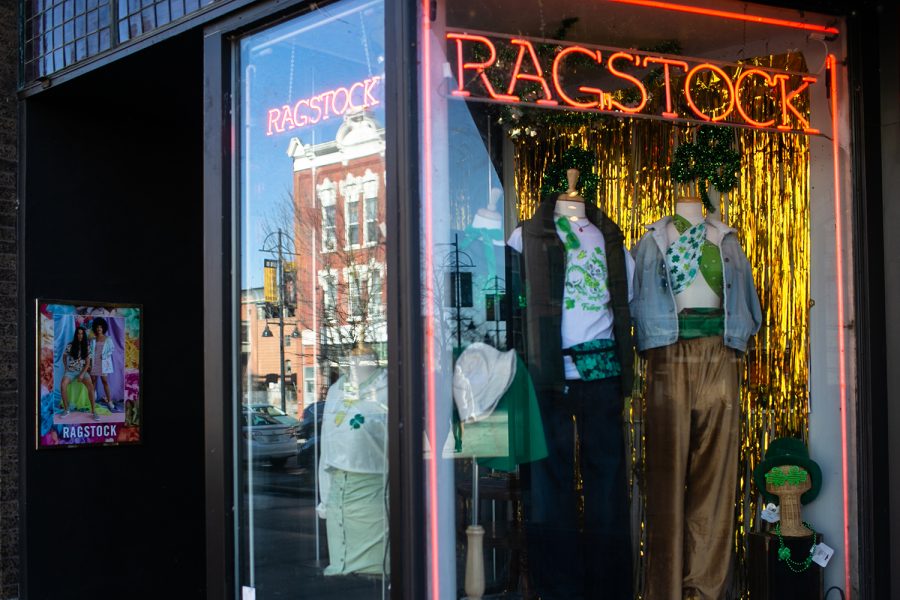Economic pressures draw more customers to Iowa City thrift stores
After closing down at the beginning of the COVID-19 pandemic, Ragstock and Goodwill have returned to pre-pandemic status.
Ragstock is seen in Iowa City on Sunday, Feb. 2, 2022. Ragstock was closed for two months in 2020 due to COVID-19 but was able to recover financially.
February 20, 2022
As inflation causes the cost of everyday goods to rise, more people are turning to thrift stores, Iowa City second-hand shops say.
Goodwill of the Heartland closed during 2020 at the beginning of the pandemic but has been able to recover financially, marketing director Brent Watkins said.
“But fortunately, through all of that, we’ve survived, and we now are thriving,” Watkins said. “Last year we had one of our best years ever, simply because people recognize the value of shopping, used goods, cars, with inflation and the economic pressures that the pandemic brought.”
According to ThredUp, an online resale site, 33 million customers bought secondhand clothes for the first time in 2020, many spurred by the pandemic.
In Iowa City, masks are required to be worn in public spaces, which includes retail stores such as Ragstock and Goodwill, two popular thrift stores in the city. Both stores recommend masks be worn by customers, and employees are required to be vaccinated.
Ragstock, a thrift store in downtown Iowa City, was closed for about two months in 2020, said Nora Heiland, Ragstock assistant manager. Heiland said the store recovered after its closure.
“We have very loyal customers, college students who consistently come in for cheap clothing and/or costumes,” Heiland said. “Whether it be themed parties or Halloween, for any kind of holiday.”
Tommy Stevens, a University of Iowa second-year elementary education student who said they thrifts everything they can, stopped thrifting at Goodwill of the Heartland, among other places, during 2020 because of COVID-19.
Stevens said they began returning to thrift stores in summer 2021.
“I think thrifting is important because buying cheap new clothes exploits workers and exacerbates dangerous climate changes,” Stevens wrote in an email to The Daily Iowan.
According to ThredUp, the resale industry is expected to grow 11 times faster than the traditional retail industry by 2025. The site predicts the secondhand and donation industry will be worth $30 billion dollars annually by 2025.
Both thrift store employees recognize that buying thrifted clothes is a cheaper alternative for customers, Watkins said.
“We find that people are shopping our stores more because you know how much less expensive it is than buying new,” Watkins said.
Both companies have been able to return to their pre-pandemic business, with customers coming in and out of their doors, said Heiland.
Watkins said that his location was able to hire back the 80 percent of employees that were laid off in 2020. Heiland credits Ragstock’s loyal customers to their ability to bounce back to pre-pandemic business, by using their front window to display new arrivals.
“As people have gotten more comfortable with just living in a pandemic, it’s definitely picked up. This past Halloween was much busier for us than 2020 for us, because more people were just more comfortable,” Heiland said.







